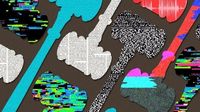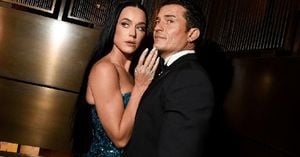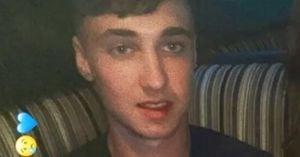In a landmark move shaking the entertainment and technology worlds, Disney and NBCUniversal have jointly filed a federal lawsuit against Midjourney, a generative AI start-up, accusing it of massive copyright infringement. The suit, lodged on June 11, 2025, in the U.S. District Court for the Central District of California in Los Angeles, marks the first time major Hollywood studios have taken direct legal action against a generative AI company over intellectual property violations.
The lawsuit alleges that Midjourney’s AI image generator, launched in February 2022, has been systematically using and distributing unauthorized reproductions of some of the most iconic characters in film and television history. These include Marvel’s Deadpool, Wolverine, Iron Man, Spider-Man, and the Hulk; Star Wars’ Darth Vader, Yoda, R2-D2, C-3PO, and Chewbacca; Disney’s Princess Elsa and Olaf from "Frozen"; characters from "The Simpsons"; Pixar’s Buzz Lightyear from "Toy Story" and Lightning McQueen from "Cars"; DreamWorks’ "How to Train Your Dragon"; and Universal’s "Shrek" and the Minions from "Despicable Me."
Midjourney, founded in 2021 by David Holz—a former NASA researcher and co-founder of Leap Motion—has grown rapidly, boasting nearly 21 million users as of September 2024 and generating over $300 million in revenue last year. The company operates on a subscription model, charging users between $10 and $120 monthly to access and download AI-generated images. However, Disney and NBCUniversal contend that these images infringe upon their copyrighted works, accusing Midjourney of “helping itself to Plaintiffs’ copyrighted works” without investing in their creation.
“Midjourney is the quintessential copyright free-rider and a bottomless pit of plagiarism,” the studios assert in their complaint. They argue that the company’s conduct “misappropriates Disney’s and Universal’s intellectual property and threatens to upend the bedrock incentives of U.S. copyright law that drive American leadership in movies, television, and other creative arts.” The complaint further emphasizes that Midjourney’s business model is “calculated and willful,” highlighting the company’s refusal to halt its infringing activities despite repeated requests.
Before resorting to litigation, Disney and NBCUniversal reportedly approached Midjourney, urging it to cease the unauthorized use of their intellectual property. Yet, according to the lawsuit, Midjourney not only ignored these demands but also released new versions of its Image Service featuring “even higher-quality infringing images,” as admitted by its CEO. This defiance has prompted the studios to seek unspecified monetary damages and a preliminary and permanent injunction to restrain Midjourney from further infringement.
Horacio Gutierrez, senior executive vice president and chief legal and compliance officer at The Walt Disney Company, underscored the gravity of the situation: “Our world-class IP is built on decades of financial investment, creativity and innovation — investments only made possible by the incentives embodied in copyright law that give creators the exclusive right to profit from their works. We are bullish on the promise of AI technology and optimistic about how it can be used responsibly as a tool to further human creativity. But piracy is piracy, and the fact that it’s done by an AI company does not make it any less infringing.”
Kim Harris, executive vice president and general counsel of NBCUniversal, echoed this sentiment, stating, “We are bringing this action today to protect the hard work of all the artists whose work entertains and inspires us and the significant investment we make in our content. Theft is theft regardless of the technology used, and this action involves blatant infringement of our copyrights.”
The lawsuit paints a detailed picture of how Midjourney’s AI system operates. It alleges that the company “pulled off all the data it can, all the text it can, all the images it can” from the internet using bots, scrapers, and other automated tools to amass a vast training database. This database reportedly includes copyrighted content from the studios, which Midjourney then “cleaned” and converted to train its AI models. When users submit prompts—say, requesting an image of Darth Vader in a specific setting—the AI generates and displays high-quality, downloadable images that replicate the copyrighted characters.
Moreover, the studios highlight that Midjourney not only generates these infringing images but also curates and publicly displays them on its website’s “Explore” page, effectively advertising its ability to reproduce protected works. Despite having the technical means to prevent such outputs, the complaint alleges that Midjourney has “affirmatively chosen not to use copyright protection measures to limit the infringement.”
This lawsuit arrives amid a broader wave of legal challenges targeting AI companies accused of exploiting copyrighted materials without permission. Authors, artists, record labels, and news organizations have initiated similar suits against various AI firms, including OpenAI and Cohere. Yet, this case stands out as the first brought by Hollywood’s biggest players, signaling a new front in the ongoing battle between creative industries and emerging AI technologies.
Hollywood’s concerns about AI have traditionally centered on protecting actors’ and writers’ likenesses and performances. Now, with studios themselves stepping into the legal arena, the focus shifts to safeguarding the vast troves of intellectual property that underpin the industry. The Motion Picture Association of America (MPAA) has long fought piracy in traditional forms, but this lawsuit signals a willingness to confront AI-driven infringement head-on.
Industry experts note that the stakes are high. The American motion picture industry contributes more than $260 billion annually to the U.S. economy and supports millions of jobs. The studios argue that unchecked AI infringement threatens the very incentives that fuel creativity and innovation.
Midjourney, for its part, describes itself as a “small self-funded team” based in San Francisco, with 11 full-time staff members and a focus on design, human infrastructure, and AI. CEO David Holz has previously acknowledged the vast scope of data scraping involved in building the company’s training sets, telling Forbes in 2022 that there was “no way to get a hundred million images and know where they’re coming from.”
As the case unfolds, it will likely set important precedents about the limits of AI in reproducing copyrighted content and the responsibilities of AI companies to respect intellectual property rights. For now, Disney and NBCUniversal’s bold legal move sends a clear message: the era of unregulated AI copying of beloved characters and stories may be coming to an end.





